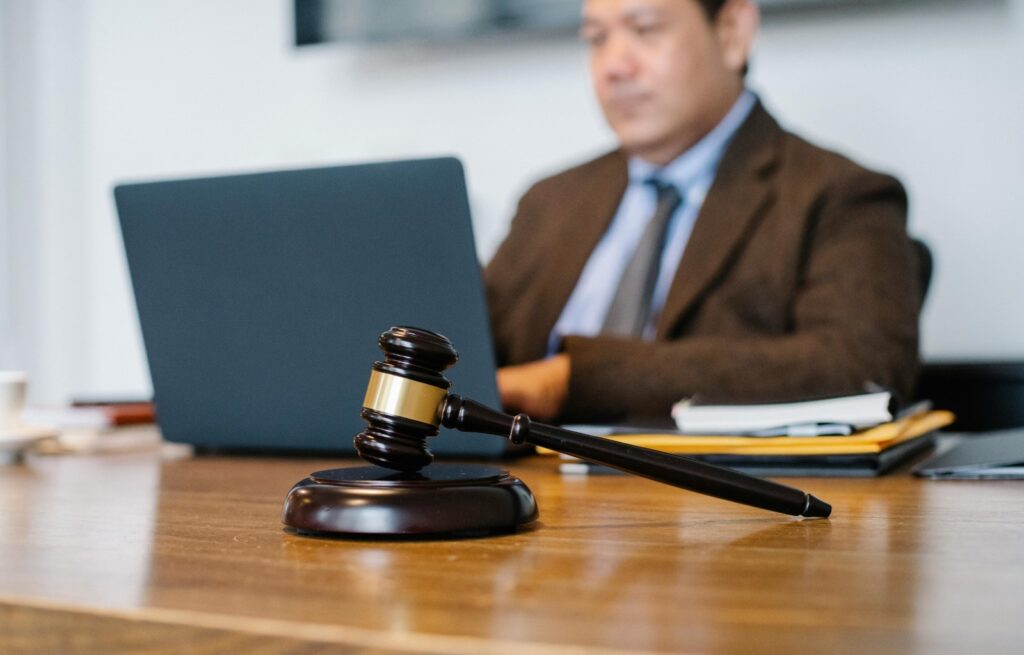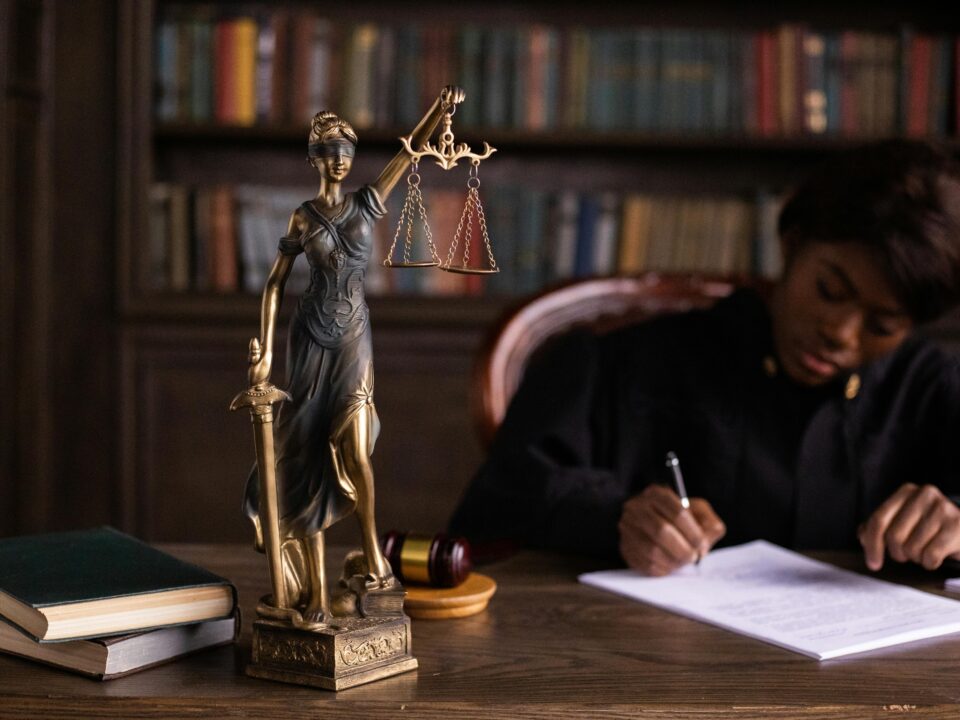
How FTC Actions Impact Your Reputation: How to Manage Crisis Communication
June 6, 2025
Navigating FTC & Compliance Investigations: A Merchant’s Playbook
October 30, 2025When businesses face investigations or enforcement actions from the Federal Trade Commission (FTC), the stakes are high. The FTC enforces a broad range of consumer protection laws designed to prevent deceptive advertising, unfair trade practices, and violations of privacy. A violation of FTC regulations can result in significant financial penalties, damage to your reputation, and potential restrictions on your business operations. That’s why it’s crucial to understand your rights and defences when facing allegations from the FTC.
If you are under investigation or facing charges from the FTC, it’s vital to consult with an experienced FTC defence lawyer who can guide you through the complex legal process. A knowledgeable FTC lawyer can help you understand the defences available to your case and develop a strategy to minimize potential penalties.
In this blog post, we will discuss some of the most effective defences against FTC violations and how an FTC attorney can assist you in navigating the regulatory landscape.
Lack of Intent or Knowledge of the Violation
One of the strongest defences against an FTC violation is the argument that the business or individual involved did not have knowledge of the violation or did not intend to break the law. The FTC typically requires that a business has some level of awareness or intent when committing a deceptive act.
If you can prove that you did not knowingly engage in any deceptive or unfair conduct, it can reduce or even eliminate liability in certain cases. This defense is particularly useful if:
- There was a misunderstanding of the regulations
- The violation was an isolated incident
- The business took immediate corrective action upon discovering the violation
An FTC defense lawyer can assist in gathering evidence to demonstrate a lack of intent or knowledge. By working with your legal team, you can prove that any violations were accidental and that you did not engage in the conduct intentionally.
Due Diligence and Compliance Programs
If your business has a solid compliance program in place and demonstrates that you took proactive steps to avoid violations, this can be a strong defense. The FTC considers businesses that make a good-faith effort to comply with the law in a more favorable light.
A comprehensive compliance program typically includes:
- Regular employee training on relevant FTC regulations
- Regular audits of marketing and advertising practices
- Clear internal policies to ensure adherence to consumer protection laws
If you can show that your business made reasonable efforts to comply with FTC rules, it can help to reduce penalties or even lead to a dismissal of the case. An FTC attorney can help demonstrate the strength of your compliance program, including any steps taken to monitor your business practices regularly.
Lack of Harm to Consumers
In some cases, businesses can defend themselves against FTC violations by showing that their conduct did not harm consumers. For example, if the FTC accuses your business of false advertising, you might argue that the misleading statement did not affect consumer decision-making or cause any harm to the public.
Proving that there was no harm is often difficult, but it is not impossible. If your defense can show that consumers were not misled, suffered no financial loss, or that any misinformation was trivial or inconsequential, it can weaken the case against you.
An FTC defence lawyer can help you collect evidence to demonstrate that your actions did not cause significant harm. This may involve expert testimony, consumer surveys, or financial data that show no impact on purchasing behavior.
Lack of Material Misrepresentation
The FTC enforces laws related to unfair or deceptive trade practices, and a key element of these violations is whether a material misrepresentation was made. Material misrepresentation refers to misleading or false statements that would likely influence the consumer’s decision to purchase a product or service.
If the statement or practice in question was not material—meaning it would not have significantly impacted the consumer’s choice—this can be a strong defense. For example, if your business made a technical or minor error in advertising but the information was not crucial for the consumer’s purchase decision, you may be able to argue that the alleged misrepresentation was not material.
This defense can be complex and requires a thorough review of the facts and evidence. An FTC lawyer can assist in evaluating the materiality of the alleged misrepresentation and building a compelling case in your favor.
Truthful Advertising and Substantiation of Claims
One of the most common violations businesses faces involves false or misleading advertising. However, businesses can often defend themselves by showing that their advertising claims were truthful and supported by reliable evidence. The FTC requires that businesses have proper substantiation for claims made in advertisements, especially when those claims are related to health, safety, or product effectiveness.
To successfully mount this defense, your business must present evidence that demonstrates the accuracy of your claims. This might include:
- Scientific studies
- Expert endorsements
- Consumer testimonials
Having strong, reliable evidence to substantiate your claims can be a powerful defense against accusations of false advertising. Your FTC defense lawyer can help you gather the necessary documentation and expert testimony to prove that your advertising was truthful and supported by solid evidence.
First Amendment Protections
In some cases, businesses may be able to defend themselves by invoking First Amendment protections. The First Amendment guarantees the right to free speech, and while the FTC regulates commercial speech, it does not prohibit all forms of advertising or marketing. If your business can demonstrate that the alleged violation involves protected speech and does not meet the legal threshold for deceptive or unfair practices, this may be an effective defense.
For example, if a business is accused of misleading advertising but can show that the message was a truthful opinion or an expressive advertisement, the First Amendment might protect the business from liability.
Lack of Jurisdiction
In some cases, businesses may successfully argue that the FTC lacks jurisdiction over the matter. This is often a defense when the alleged violation does not fall within the scope of the FTC’s authority, or if the business was not subject to the specific regulations being enforced.
An FTC attorney can help evaluate whether the FTC has proper jurisdiction over your business and whether there are any grounds to challenge jurisdiction in the case.
Negotiation and Settlement
Finally, businesses facing FTC violations often consider negotiating a settlement to avoid lengthy and costly litigation. A settlement can reduce potential fines and penalties and allow your business to move forward without a lengthy court battle.
An FTC defense lawyer can assist in negotiating with the FTC and crafting a settlement agreement that is favourable to your business. This may involve agreeing to certain corrective actions, such as changing business practices or issuing refunds to consumers, in exchange for reduced penalties.
FAQs About FTC Violations
Q1: What should I do if I receive an FTC investigation notice?
A1: If you receive a notice of investigation from the FTC, contact an FTC attorney immediately. An experienced lawyer can help you navigate the investigation process and develop an effective defense strategy.
Q2: Can I challenge the FTC’s findings in court?
A2: Yes, you have the right to challenge the FTC’s findings in court. An FTC defense lawyer can help you prepare for litigation if the case proceeds to court.
Q3: How can an FTC defense lawyer help me with a deceptive advertising case?
A3: An FTC defense lawyer can help you gather evidence to prove that your advertising was truthful and substantiated, or that any violations were unintentional or minimal. They can also help negotiate settlements or defend your case in court.
Q4: What penalties can the FTC impose on my business?
A4: The FTC can impose significant fines and penalties for violations, including monetary fines, corrective actions, and restrictions on your business practices. However, a strong defense can reduce or eliminate these penalties.
Q5: Can I avoid penalties if I have a compliance program in place?
A5: Having a compliance program in place shows that your business is making good-faith efforts to comply with FTC regulations. While it may not eliminate penalties, it can help reduce the severity of the consequences.
Conclusion
Facing allegations from the FTC can be a daunting experience for any business. However, understanding the top defenses available to you can make a significant difference in the outcome of your case. Whether it’s proving a lack of knowledge, demonstrating compliance, or challenging the materiality of the violation, a well-prepared defense can help protect your business from severe penalties.
If your business is under investigation or facing charges from the FTC, it’s crucial to consult with an experienced FTC defense lawyer. At TFM Law Firm, our FTC attorneys have the knowledge and expertise to guide you through the regulatory process and develop a defense strategy tailored to your unique situation.
For more information, visit our FTC Defense Lawyer page and get in touch with us today to discuss your case.




